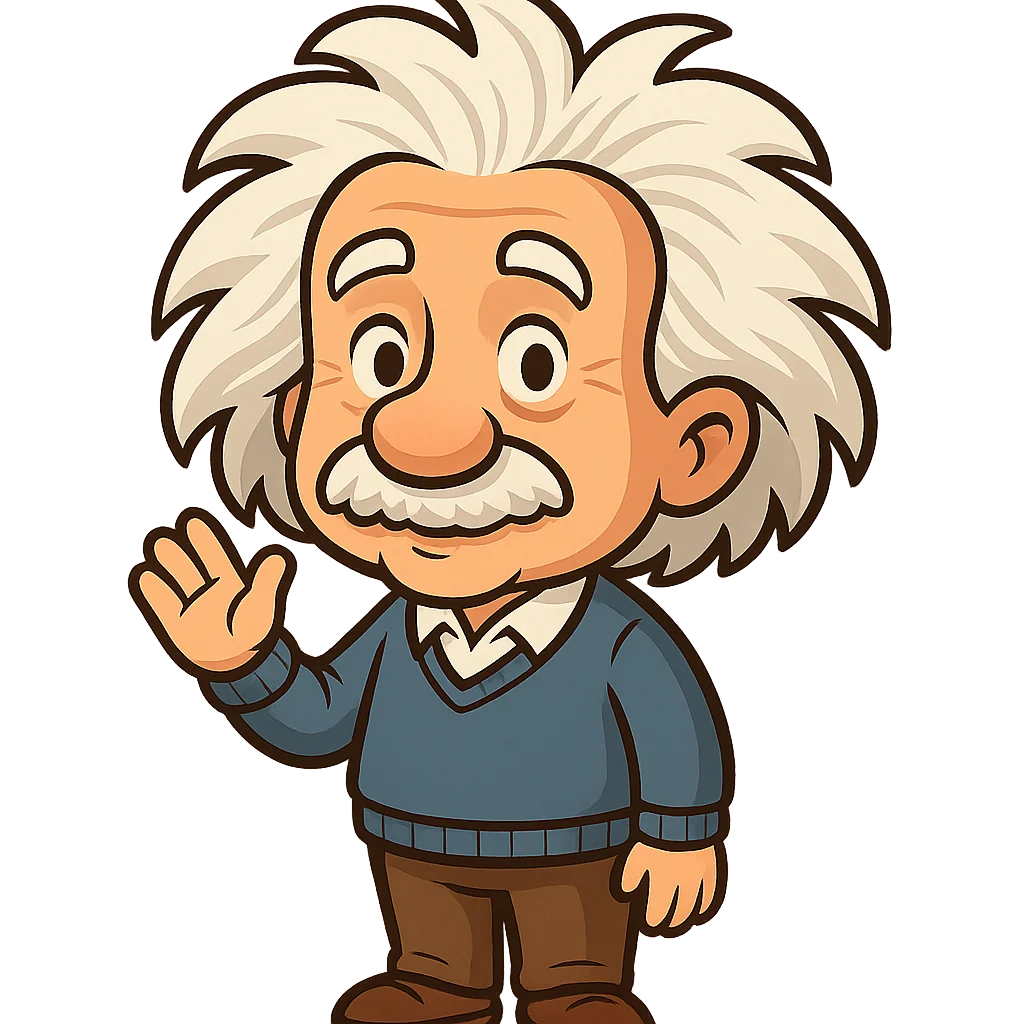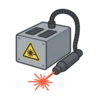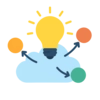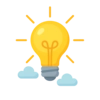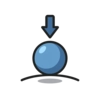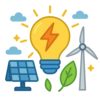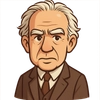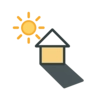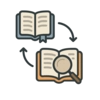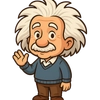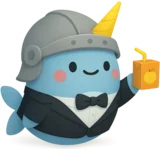Albert Einstein
Hello there. My name is Albert Einstein, and I want to tell you a story about curiosity. It all started when I was just a little boy, born in Ulm, Germany, way back in 1879. When I was very young, I didn't speak much. My parents, Hermann and Pauline, sometimes worried about me. But while I was quiet on the outside, my mind was a whirlwind of questions, like a busy beehive buzzing with thoughts about the world around me. I loved to build tall houses out of playing cards and solve tricky puzzles. One day, when I was about five years old and sick in bed, my father gave me a gift that changed my life. It wasn't a toy car or a fancy ball. It was a simple magnetic compass. I held it in my hand and stared at it, completely mesmerized. No matter which way I turned it, the little metal needle inside trembled and then pointed steadily north. I couldn't see anything pushing or pulling it. It was like magic. But I knew it wasn't magic; it was a force of nature, something invisible yet incredibly powerful. That tiny compass needle sparked a huge question in my mind: What other invisible forces were at play in the universe. I spent hours thinking about it, imagining what it would be like to ride on a beam of light across the stars. That little compass didn't just point north; it pointed me toward a lifetime of exploring the biggest mysteries of the universe.
As I grew up, my curiosity only got bigger. I went to school and then to a university in Switzerland, where I met a brilliant fellow physics student named Mileva Marić, who later became my first wife. After I graduated, I couldn't find a job as a professor, so I took a position at a patent office in Bern. A patent office is a place where inventors send their ideas to be protected. My job was to look at their drawings and figure out if their inventions would work. It might not sound very exciting, but it was perfect for me. The work was simple enough that it left my mind free to wander and dream. I would sit at my desk and conduct what I called 'thought experiments'—imagining scenarios in my head to solve physics problems. The year 1905 was a very special one for me. I was only twenty-six years old, but I felt like my brain was on fire with ideas. Later, people would call it my 'Annus Mirabilis,' which is Latin for 'Miracle Year.' In just a few months, I wrote and published four scientific papers that would completely change how we understand our world. One paper explained that light isn’t just a wave, but can also act like a tiny particle. Another paper proved that atoms were real. But the most famous idea came from a very short paper that contained a secret recipe for the universe: E=mc². It sounds complicated, but it simply means that energy (E) and matter (m) are two sides of the same coin and can be turned into each other. It was a discovery that unlocked the power hidden inside the tiniest atoms.
My 'Miracle Year' made scientists around the world take notice. Life became very different. I became a professor, and in 1921, I was awarded the most important prize in science, the Nobel Prize in Physics. But being famous wasn't always easy. As the years went on, the world changed. A new, hateful government came to power in my home country of Germany, and because I was Jewish, it was no longer safe for me and my second wife, Elsa, to live there. So, in 1933, we moved across the ocean to America. I found a new home in a quiet town called Princeton, New Jersey, where I worked at a special place called the Institute for Advanced Study. I never stopped thinking about physics, but I also felt it was my duty to use my voice to speak up for what was right. I had seen the terrible things that hatred and war could do, and I spent the rest of my life speaking out for peace, freedom, and kindness among all people. My life's journey ended in 1955, but I hope my ideas did not. Looking back, I see that my whole life was a journey that started with a simple question about a compass. I hope you remember to always stay curious, to ask big questions, and to use your wonderful imagination not just to understand the world, but to make it a better and more peaceful place for everyone.
Activities
Take a Quiz
Test what you learned with a fun quiz!
Get creative with colors!
Print a coloring book page of this topic.

